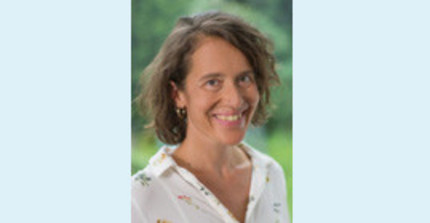International, EU Organizations & Federal Foreign Office
The United Nations, World Health Organization or European Parliament – supranational organizations and committees significantly shape and influence international politics with their programs, policies and actions. The same applies to national ministries of foreign affairs, such as the Federal Foreign Office in Berlin. Anyone looking to actively take part in international policy-making or apply their own skills in an international, political context should aim for a career in these organizations.
All organizations that are established on the basis of human rights agreements between two or more countries to pursue common goals are referred to as international organizations (IO). Prominent examples, in addition to those mentioned above, are the Organization for Security and Co-operation in Europa (OSCE) or the International Labor Organization (ILO). Thus, EU-Organizations are also international organizations. Embedded into the political system of the European Union, they take responsibility for federal tasks on a supranational level. Alongside the European Parliament, EU-Organizations include the European Commission, the European Court of Human Rights and the European Investment Bank. The Federal Foreign Office, though not an international organization, co-operates with these extensively as the official German Ministry of Foreign Affairs. It has a central office in Berlin, a secondary one in Bonn, 230 representative offices (embassies, general consulates) in foreign countries worldwide, as well as constant representatives in international and EU organizations themselves.
As with inner German parliaments, parties and ministries, the work of international organizations or representatives does not constitute an independent occupational field, strictly speaking, but rather its own job market. Depending on mission and size, political IOs focus on all areas of social life, such as economics and trade, agriculture, industry, education, culture, peace, safety and conflict, law, environmental protection, healthcare, humanitarian aid, infrastructure, telecommunication, poverty reduction, nutrition, etc. Therefore, the span of possible tasks and positions is extremely broad. Experts on all sorts of academic subjects are in demand for specific programmatic positions, that collect and evaluate data, develop concepts and programs, lead the implementation of measures, follow, analyze and evaluate political discussions and processes with their expertise, etc.
In addition to the actual political or content-related work, a row of tasks serving the maintenance and basic operative processes of the organizations, such as interpretation and translation assignments, the solving of legal questions, administrative and management tasks, event planning, public relations work, financial management, data processing, archiving and much more, arise, meaning that the actual duties of a certain position depend on the specific job advertisment.
Participation in special programs a prerequisite for speaker or consultant positions in the Federal Foreign Office or as an EU official
Graduates looking to become active in the international political arena should therefore consider if they want to be part of the direct development and conceptualization of political measures in their field of interest or if they’d rather perform a supporting role in the administrations of these institutions. Also, positions are often divided into those for generalists with universal leadership and management tasks and those for specialists within a certain field (cybersecurity, for example).
Anyone striving towards a career as an EU-official or speaker in the higher civil service of the Federal Foreign Office must participate in specific application and preparation programs. Due to the fact that a large number of highly qualified contenders has their sights set on a place in these programs every year, it is advisable to take a good look at the structure of the exams and programs and prepare for them long-term. Entry into the individual international organizations is also regulated through special admissions and training programs. Concrete information on specific admissions requirements and selection processes is best obtained from the respective organizations themselves.
Irrespective of these programs, organizations also offer other positions on a junior, middle or senior level. In addition to very good language skills in at least two of the working languages of the respective organization and relevant formal qualifications, these positions often require previous practical experience, specifically in an international organization. Applicants should therefore complete internships or participate in youth programs, such as the Carlo Schmid program, for example, in order to gain practical experience throughout the course of their studies. Proof of prolonged stays in multiple foreign countries, as well as volunteering are also beneficial in the application process.
Anyone interested in working for international or EU organizations or the Federal Foreign Office should also be aware that the expectations regarding performance and flexibility of candidates are very high. This applies to the content-related work and the work in intercultural teams, but also the formal conditions: limited or temporary contracts, deployment to different countries within a short timeframe, challenges related to security policies at the place of employment (in conflict regions, for example) and the often difficult reconciliation of work and familial priorities.

